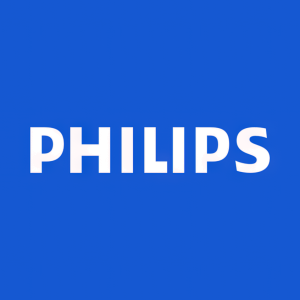Philips announces new interoperability capabilities that offer a comprehensive view of patient health for improved monitoring and care coordination
October 10, 2023
Interoperability of Philips Capsule Medical Device Information Platform (MDIP) with Philips Patient Information Center iX (PIC iX) includes streaming, vendor-neutral data to support care delivery and collaboration
Amsterdam, the Netherlands – Royal Philips (NYSE: PHG, AEX: PHIA), a global leader in health technology, has announced the interoperability of Philips Capsule Medical Device Information Platform (MDIP) with Philips Patient Information Center iX (PIC iX), providing hospitals with a first-of-its-kind, comprehensive patient overview. As a world leader monitoring more than 600 million patients each year worldwide, Philips is creating an open patient monitoring ecosystem to bring together disparate medical devices and systems on a single interface. Interoperability between MDIP and PIC iX gives clinicians a new clinical perspective that enables the capture of streaming data flowing freely from a variety of medical device manufacturers on an open, scalable, secure platform. By disseminating this information through the Patient Information Center, clinicians have a single source, comprehensive overview of a patient’s condition that helps empower caregivers to make treatment recommendations confidently from anywhere throughout the hospital’s digital environment.
Breaking down patient data barriers
Historically, data from medical device vendors has been siloed, leaving clinicians with the laborious task of referencing multiple sources to gain a complete clinical view of the patient. The inefficiencies caused by this disjointed process can impact a clinician’s ability to deliver timely diagnoses and treatments to patients. Philips is addressing technical obstacles associated with interoperability, such as device-specific connectivity protocols and security challenges across the organization, to help caregivers view, document, report, and analyze data before making care-related decisions.
Pulling data from a variety of different non-Philips devices, such as ventilators, infusion pumps, and third-party vital signs monitors, Philips presents and distributes the information in a single, standardized interface. Clinicians are then presented with a comprehensive picture of a patient's health based on available medical device data. Access to this level of detailed information may minimize the time a clinician spends prioritizing data from multiple sources. With the goal of creating efficiencies associated with determining diagnoses and treatment decisions, this new interoperability may allow caregivers to spend more time providing direct patient care.
“Every day, clinicians make countless care decisions based on information from divided medical devices and systems. It’s time we start caring for the carers by making data more accessible,” said Christoph Pedain, General Manager, Hospital Patient Monitoring at Philips. “By ever-improving availability and accessibility of patient information, clinicians and patients benefit through enhanced workflows, insights, improved care delivery and safety measures that may lead to better health outcomes and the better use of staff and infrastructure.”
Improving clinical workflows through harmonized data
Data is captured from almost any device or patient monitor vendor with the aim of improving competencies and processes. Harmonized data is available to caregivers across the hospital. A streamlined, standardized view of the patient can be accessed through the central station, web, or mobile application, so clinicians can act more quickly regardless of their location in the hospital. Meaningful insights and status updates allow clinicians to automate administrative tasks or close information gaps, helping them save time and get back to treating patients.
“In a healthcare landscape burdened by disparate data, there exists a need to usher in the next wave of clinical innovation. But one health technology company cannot do this alone,” said Lynne A. Dunbrack, Group Vice President at International Data Corporation, a premier global provider of market intelligence. “The only way that hospitals can achieve the next level of efficiency and quality of care is by sharing patient data across systems, vendors, and devices. With this new offering, Philips is in a unique position to help drive new vendor-to-vendor interoperability standards to better support our care providers and the patients they serve.”
Committed to an open ecosystem
This interoperability is the latest example of Philips’ journey to create a large open patient monitoring ecosystem that includes third-party applications and algorithms. The unique vendor-to-vendor interoperability helps to improve access and availability to critical patient information, supporting care delivery and collaboration. A comprehensive ecosystem allows hospitals to better leverage digital health investments and manage devices across multiple vendors. Health systems can establish a balance between standardized and personalized care across acuities and disease pathways.
Enabled by the Philips PIC iX infrastructure and applications that are centrally managed, maintained, serviced, and secured, customers will receive support and consultative services to help them navigate installation, analytics, and optimization.
For more information on the Philips Capsule Medical Device Information Platform with the Philips Patient Information Center iX, please visit www.philips.com/pic-mdip/clinicians.
For further information, please contact:
Meredith Amoroso
Philips Global Press Office
Tel. : +1 724 584 8991
E-mail: meredith.amoroso@philips.com
About Royal Philips
Royal Philips (NYSE: PHG, AEX: PHIA) is a leading health technology company focused on improving people's health and well-being through meaningful innovation. Philips’ patient- and people-centric innovation leverages advanced technology and deep clinical and consumer insights to deliver personal health solutions for consumers and professional health solutions for healthcare providers and their patients in the hospital and the home. Headquartered in the Netherlands, the company is a leader in diagnostic imaging, ultrasound, image-guided therapy, monitoring, and enterprise informatics, as well as in personal health. Philips generated 2022 sales of EUR 17.8 billion and employs approximately 71,500 employees with sales and services in more than 100 countries. News about Philips can be found at www.philips.com/newscenter.
Attachment









